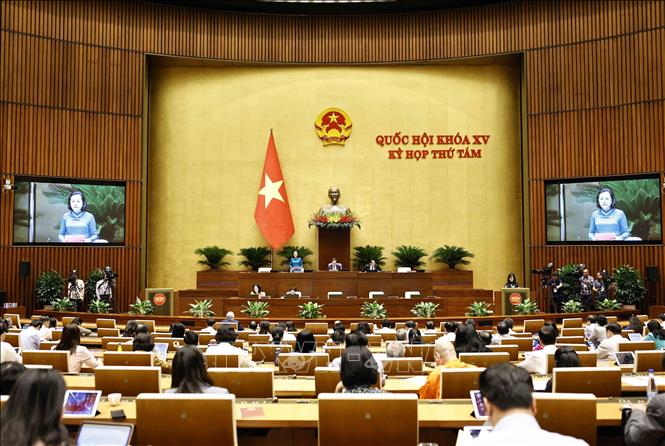
Ensure legitimate rights and interests for union officials
Proposing to remove the regulation “having written agreement from the Executive Board of the grassroots Trade Union” in Clause 2, Article 28, delegate Ha Sy Huan (Bac Can) explained that members of the Executive Board of the grassroots Trade Union are employees recruited by the employer. The regulation requiring written agreement from the Executive Board of the grassroots Trade Union may not satisfy transparency and is not really suitable. Therefore, it is necessary to amend the regulation to only require written agreement from the Executive Board of the direct superior Trade Union.
Sharing the same view with delegate Ha Sy Huan, delegate Tran Nhat Minh ( Nghe An ) said that Clause 2 of Article 27 stipulates that members of the Executive Committee of the grassroots Trade Union are paid by the employer, so if it is stipulated as in the draft law, it is easy for the employer to request or force the Executive Committee of the grassroots Trade Union to agree, compromise, causing disadvantages for union officials when they are fired or quit, thereby leading to the mentality that grassroots trade union officials do not dare to fight for the workers. The regulation requiring written opinions from the Executive Committee of the direct superior Trade Union will be aimed at protecting the rights of grassroots trade union officials.
According to delegate Tran Nhat Minh, Clause 3 of Article 28 is still general and unclear about which level of trade union is responsible for protecting grassroots trade union officials when their contracts are terminated. The delegate suggested that the Drafting Committee clarify this provision, and that it should be regulated as the responsibility of the grassroots trade union organization. The delegate proposed to amend it in the direction that in the case of a non-professional trade union official whose labor contract or employment contract is terminated by the employer, forced to quit or illegally dismissed, the grassroots trade union is responsible for requesting the competent state agency to intervene. If authorized, the grassroots trade union will represent the employee in filing a lawsuit in court to ensure the legitimate rights and interests of the trade union official.
The General Confederation is responsible for deciding on the allocation of funds.
Regarding the management and use of trade union finances (Article 31), Chairwoman of the National Assembly's Social Committee Nguyen Thuy Anh said that the National Assembly Standing Committee has directed the adjustment in the direction of supplementing regulations on the principles of management and use of trade union finances (Clause 1); reviewing the task of spending trade union funds to ensure more comprehensiveness and completeness (Clause 2); not stipulating in the Law the distribution of trade union funds when there are many representative organizations of workers to ensure flexibility and harmony. At the same time, adding the regulation "After agreeing with the Government, the Vietnam General Confederation of Labor shall prescribe standards, norms, spending regimes, decentralization of collection, distribution and management, and use of trade union finances in accordance with the requirements of the trade union's tasks" (Clause 4); assigning the Government to specify in detail the management and use of trade union funds of workers' organizations at enterprises.
Agreeing with the lack of specific regulations on the plan for distributing union funds to employee organizations at enterprises, delegate Dang Thi My Huong ( Ninh Thuan ) said that it is necessary to study regulations to ensure the mechanism for implementing this content. The distribution of union funds should be assigned to the Vietnam General Confederation of Labor as before, ensuring transparency in management work. Depending on the tasks of the union organization and the practical situation in each period, the Vietnam General Confederation of Labor will distribute union funds appropriately, to ensure the right to self-determination in work.
Recognizing that the regulation that the Vietnam General Confederation of Labor agreed with the Government when issuing criteria for trade union financial expenditure norms "will increase procedures, cause difficulties for trade union activities, and the implementation method is very unfeasible", delegate Duong Van Phuoc (Quang Nam) explained that up to now, the General Confederation has based on the State's expenditure norms to build criteria and issue regulations on financial use in its organization and activities on the basis of Decree 191/2013/ND-CP.
“The results of the examination, inspection, and audit of trade union finances and the report summarizing the 10-year implementation of the Trade Union Law also have no problems. Therefore, it is appropriate to give the General Confederation the autonomy to make decisions and take responsibility for its decisions according to the provisions of the law. I propose to consider removing the provision “after agreeing with the Government” to create initiative in trade union activities, in line with the policy of innovation in trade union organization and activities in the current context,” said delegate Phuoc.
Also concerned about this regulation, delegate Chu Thi Hong Thai (Lang Son) acknowledged that currently the Government is promoting decentralization and delegation of power in state management, the Government does not interfere in trade union activities, the revenue and expenditure of trade union finances must still be ensured according to the regulations of the accounting system and be inspected and audited annually... Furthermore, according to the provisions of the draft Law, after agreeing with the Government, the authority to decide on the issuance of standards, norms, and distribution of trade union finances is still the General Confederation, so the regulation of adding a step of "agreeing with the Government" is just an additional procedure, increasing the time.
Concerns about union dues
Debate on the issue of paying union fees equal to 2% of the salary fund as the basis for compulsory social insurance for employees, delegate Nguyen Anh Tri (Hanoi) analyzed that the 2% union fee maintained since 1957 is reasonable, because the employees at that time were mainly officials and employees working in state agencies. The funds were provided by the State. When Vietnam switched to a socialist-oriented market economy, this regulation was no longer reasonable. The number of enterprises in Vietnam is currently very large, many of which have a large number of employees.
According to delegate Tri, paying a 2% union fee will be a burden for businesses with a large number of employees, to the point that businesses cannot expand, or even maintain operations, FDI investment will decrease and workers will become unemployed. The consequences will be even more serious when businesses avoid paying and do not join the union. The delegate proposed that for businesses with 500 employees, the fee be 2%. For businesses with 500-3,000 employees, the fee is 1.5%. For businesses with more than 3,000 employees, the fee is 1%. The law also needs to have stricter and clearer regulations on paying more attention to the spiritual, cultural and entertainment lives of workers.
Baotintuc.vn
Source: https://baotintuc.vn/chinh-tri/de-xuat-giao-tong-lien-doan-lao-dong-tu-quyet-viec-phan-phai-kinh-phi-cong-doan-20241024133328227.htm


![[Photo] Nhan Dan Newspaper launches “Fatherland in the Heart: The Concert Film”](https://vphoto.vietnam.vn/thumb/1200x675/vietnam/resource/IMAGE/2025/10/16/1760622132545_thiet-ke-chua-co-ten-36-png.webp)


![[Photo] General Secretary To Lam attends the 18th Hanoi Party Congress, term 2025-2030](https://vphoto.vietnam.vn/thumb/1200x675/vietnam/resource/IMAGE/2025/10/16/1760581023342_cover-0367-jpg.webp)







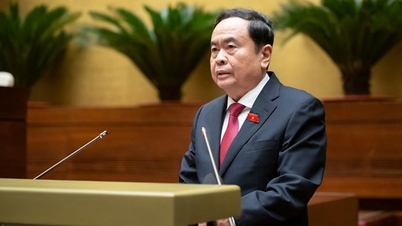
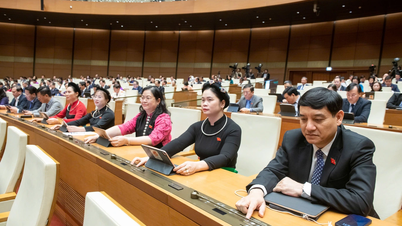

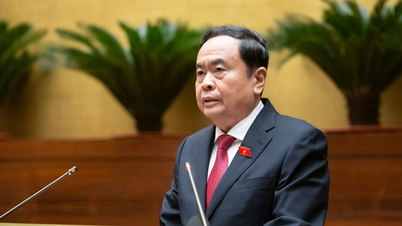







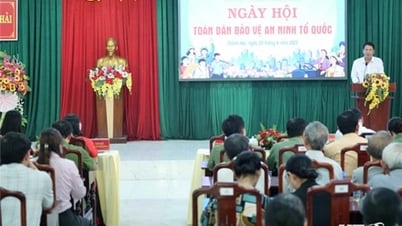





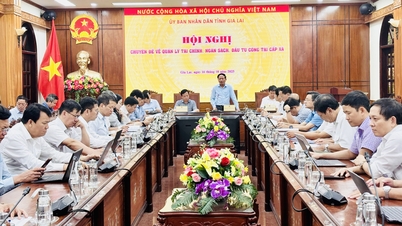
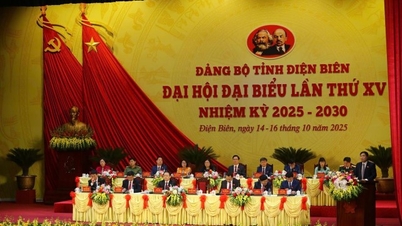
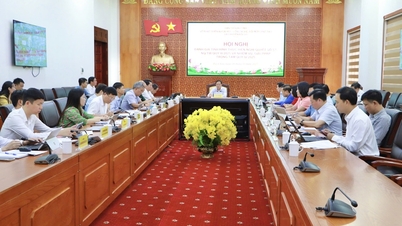
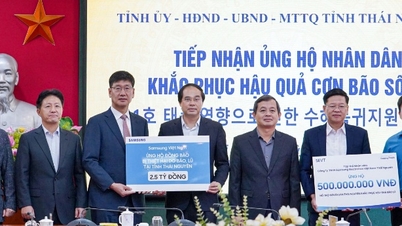








![[Video] TripAdvisor honors many famous attractions of Ninh Binh](https://vphoto.vietnam.vn/thumb/402x226/vietnam/resource/IMAGE/2025/10/16/1760574721908_vinh-danh-ninh-binh-7368-jpg.webp)



























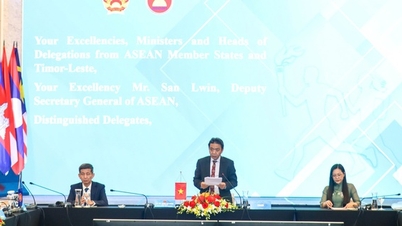
![[Photo] Nhan Dan Newspaper launches “Fatherland in the Heart: The Concert Film”](https://vphoto.vietnam.vn/thumb/402x226/vietnam/resource/IMAGE/2025/10/16/1760622132545_thiet-ke-chua-co-ten-36-png.webp)

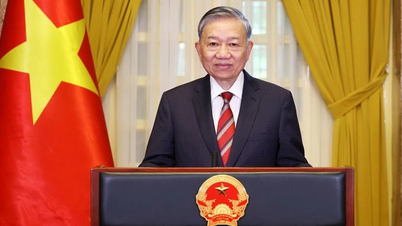





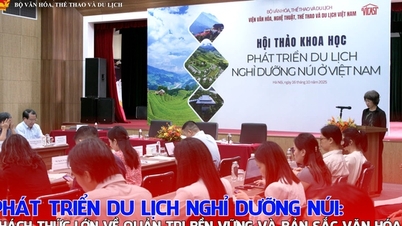
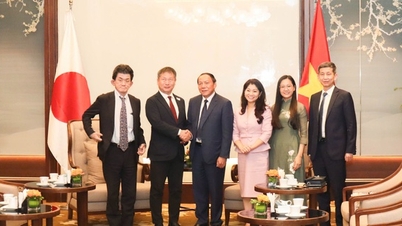
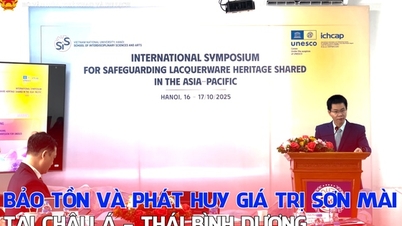
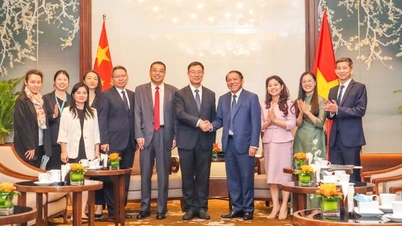
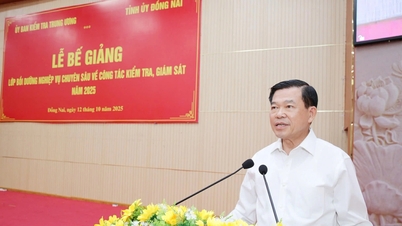







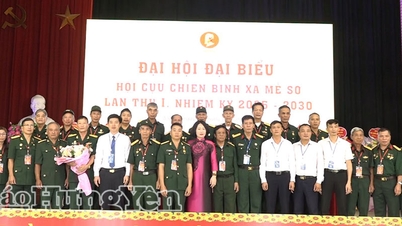



















Comment (0)